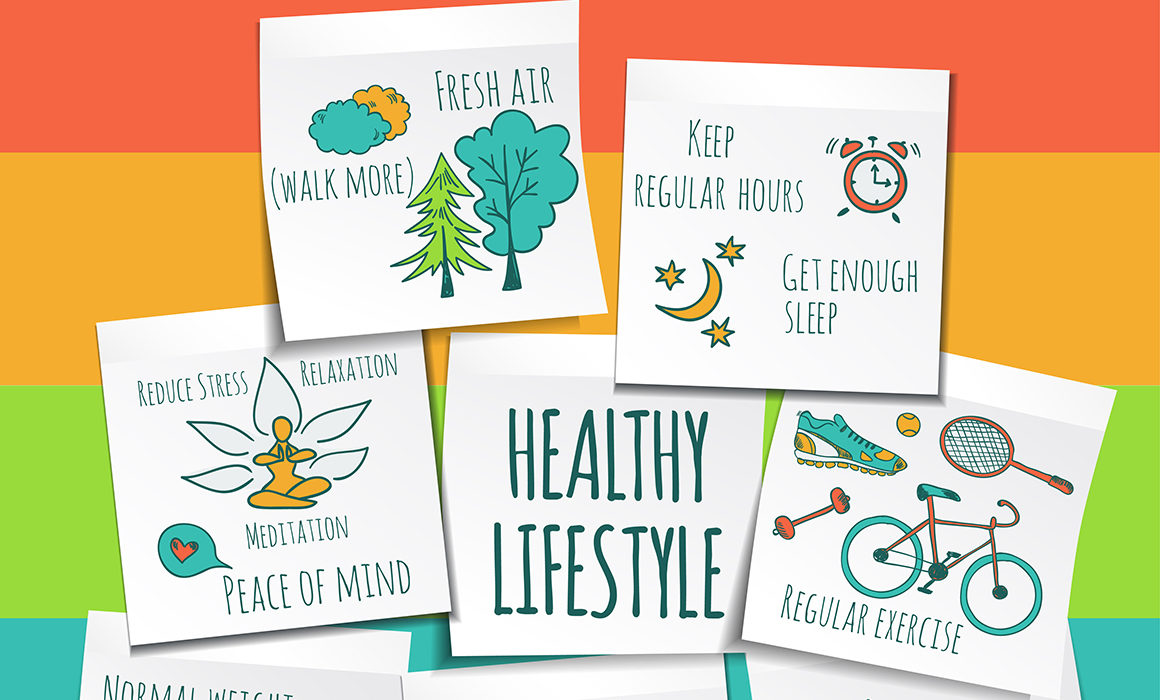
COVID-19 is a virus, but the numeral also represents the number of pounds many people gained while staying home. A survey by the American Psychological Association found that 42 percent of U.S. adults said they had gained too much weight in the pandemic.
While working remotely from home, many individuals were sedentary most of the day and unable to social-distance themselves from the refrigerator. The report found an increase in binge eating and takeout meals. Stress levels and mental health crises were also sky-high.
As we emerge from the pandemic, now is the ideal time to make positive changes and improve your physical and mental health. We asked faculty who teach adults physical fitness, nutrition and health science at community colleges for tips to get you back to health as the school year begins.
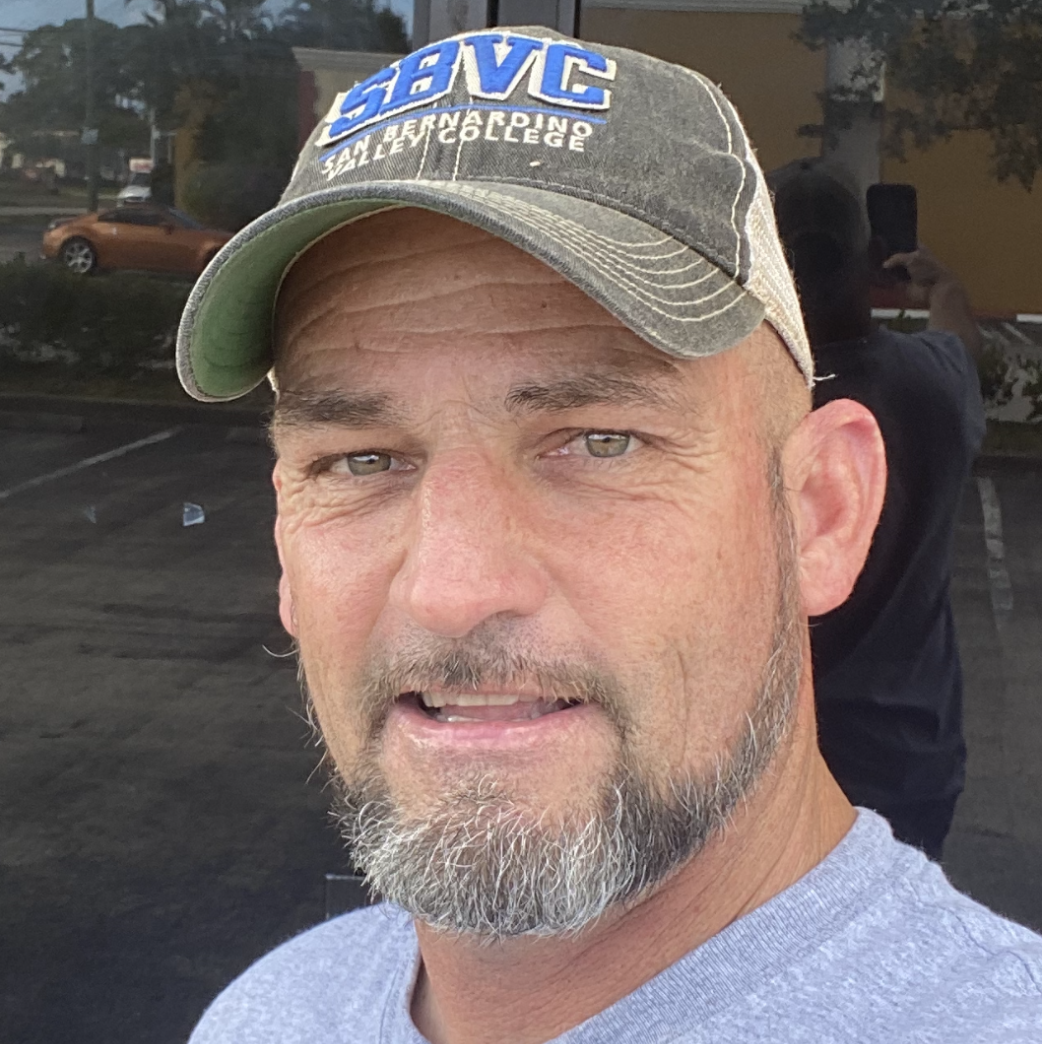
Eric Abrams
Adjunct professor of kinesiology at San Bernardino Valley College
San Bernardino CCD Teachers Association
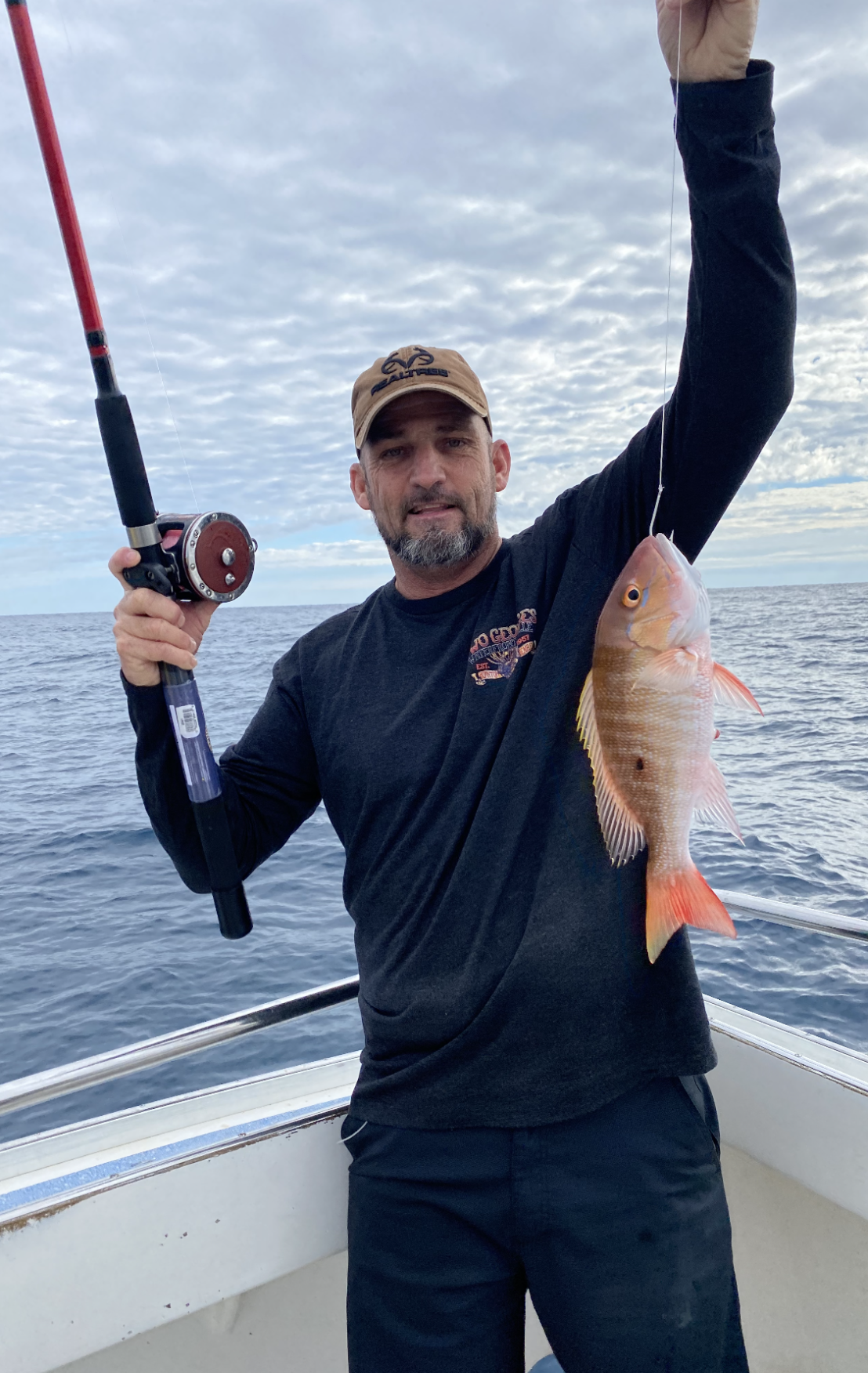
Abrams enjoys the great outdoors.
- Start slowly to get back to where you were before the pandemic in terms of activity. Build from there by adding more challenging activities and increasing the number of minutes you exercise daily, the miles you walk per week, or the number of days per week that you exercise. Make these subtle changes every few weeks to avoid increasing too quickly and doing too much too soon. Connect with like-minded people who have the same goals and get involved in a walking or exercise group. Turn off the TV.
- Be capable, confident and connected. Do things you feel capable of doing, and you become more confident in your ability. Enjoy things you feel connected to. Instead of walking on a treadmill, which is boring, go for a walk along a stream. Walk with your pets and your family. Go for a bike ride. Enjoy the scenery and diversify your activities.
- Go outside at recess and be active with students. Jump rope with them and get them moving too so they aren’t just standing around. Instead of rolling out the ball, play ball with them. Your students will love it, and you’ll get exercise, too.
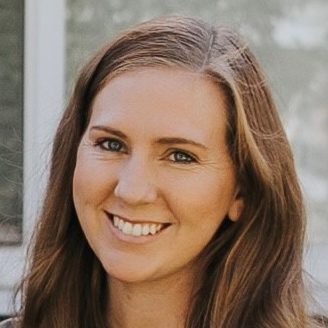
Lindsay Estrada
Adjunct professor of health science and nutrition at Riverside City College and Mt. San Jacinto College
Riverside CCD Faculty Association
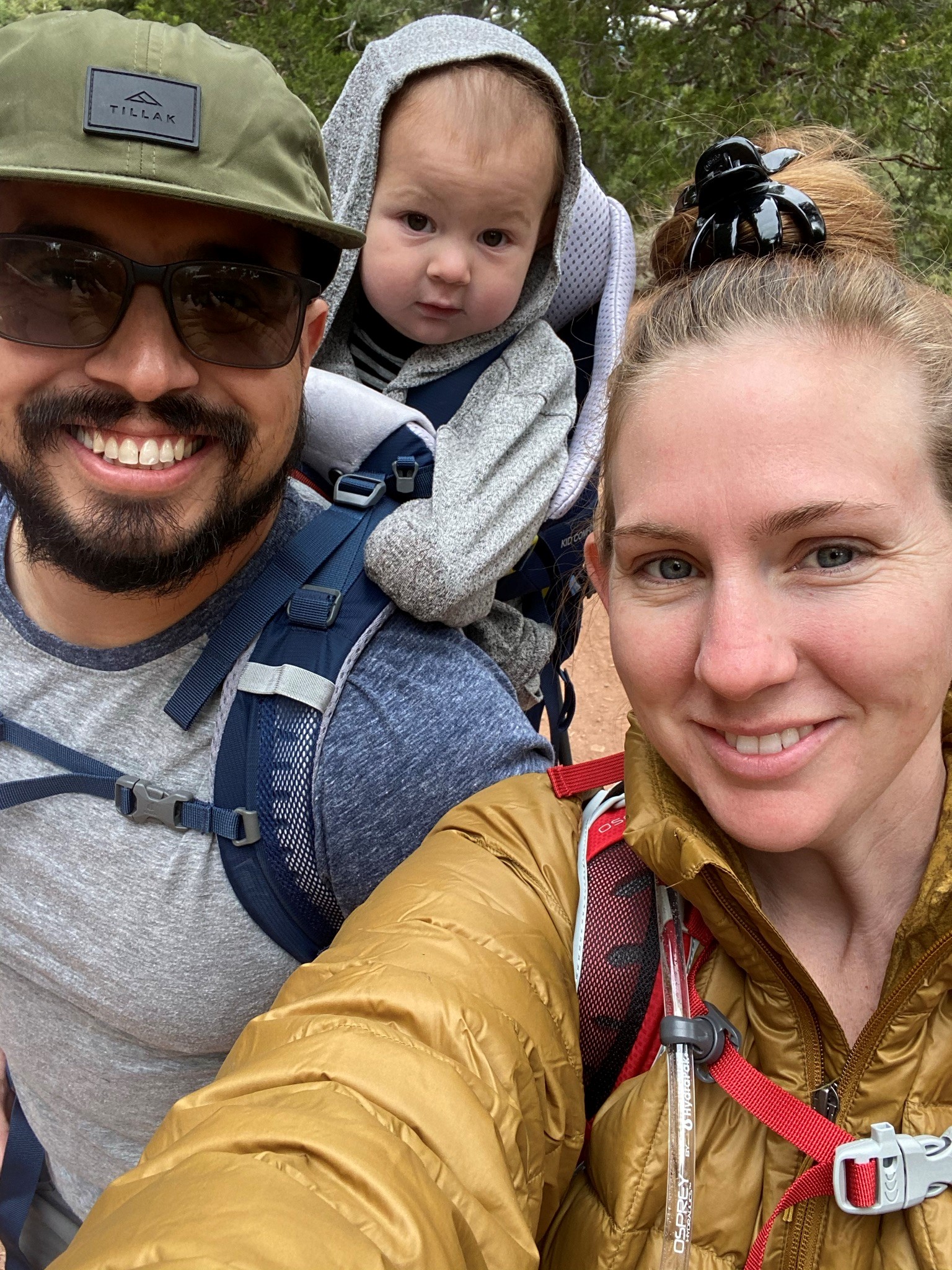
Estrada, with her family, suggests doing the things that make you happy.
- Get at least 7 to 8 hours of sleep to help your body handle the stress of daily life. A lack of boundaries between work and home life from working remotely reduced sleep in the pandemic, and healthy sleep is necessary to good health. Research shows that blue light from our tech devices slows down the body’s production of melatonin, which is necessary for sleep. Don’t use your computer or phone before bedtime.
- Manage your stress. Don’t worry about the things you can’t change, and if you can change things that you worry about, change them. Stress results in poor sleep, poor dietary choices and poor health. Don’t dwell on the past or worry about the future. Be in the present.
- Don’t commit to things you don’t have time for. Learn to say no to things you don’t want to do without feeling guilty. In our society, people feel that if they are not constantly busy, they are not doing enough. Take time to relax and do things that make you happy. Socialize and connect with other people.
- Make good dietary choices but don’t stress about them. We have a diet culture where everyone thinks they have to eat a certain way, and they end up binge eating or making poor choices and then stressing about it and overeating even more. Try for a healthy, colorful diet, limit processed foods, but don’t feel guilty if you enjoy a pizza on Friday night. Drink plenty of water and stay hydrated.
Patience Olajide
Associate faculty of health science and health care at Riverside City College; assistant professor of health, human and public services, Clark State College, Springfield, Ohio
Riverside CCD Faculty Association
- Maintain healthy habits. Habits that kept us healthy are worth keeping. The habits we practiced during the pandemic will prevent us from getting not just COVID, but other infections, too. Just because we are vaccinated doesn’t mean we should stop washing our hands really well, using hand sanitizer, and respecting each other’s personal space by keeping a bit of distance.
- See your doctor. Many of us have put off visits to the doctor in the pandemic. Have a checkup and make sure your heart, blood pressure, cholesterol and overall health is good.
- Take care of your mental health. If you are having trouble returning to work and the life you once enjoyed, find a support network or mental health professional. Find a forum where you can exchange ideas on how to ease back into work and society. Educators must take care of our own mental health so that we can be supportive of our students and convey our passion for what we are teaching.
- Give yourself time to readjust to life. The trauma of the pandemic has instilled fears in many people, and everyone has to ease back into things at their own pace and comfort level. People need time to deal with their trauma and fears — especially if they lost loved ones or became ill. Many have post-traumatic stress disorder from their experiences during the pandemic.

Becky Black
Associate professor of nutrition and dietetics at Long Beach City College
Long Beach City College Faculty Association
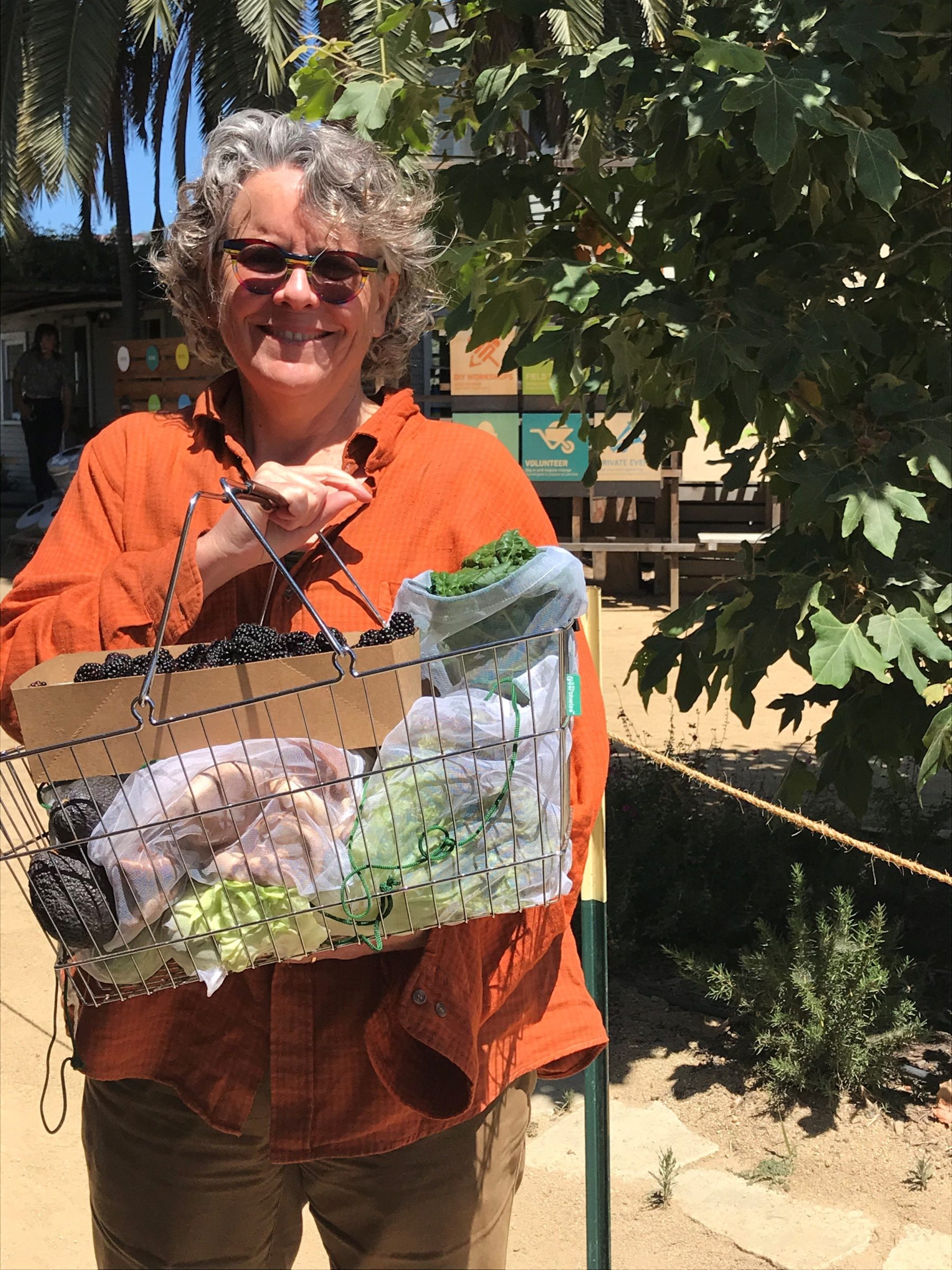
Black buys whole-food, plant-based groceries.
- Shift away from stress eating. In the pandemic, many consumed foods to manage their emotions and soothe themselves, which often resulted in poor food choices. People ate when stressed instead of when hungry. They ordered fast food due to fear of going into grocery stores. Eating for comfort was a way of coping with trauma in unprecedented times. Don’t beat yourself up over this. Instead, stop the addiction to food by reducing your intake of sugar, salt and fat.
- Embrace a whole-food, plant-based diet. Eat less dairy (including cheese) and less meat (beef, chicken, pork, fish). Buy more vegetables — starchy and green leafy, fruits (not juice), beans, nuts, and seeds. Eat whole foods that are not processed or minimally processed. If your body craves junk food, it’s because it’s accustomed to a certain level of sugar, salt and fat and gets cranky when deprived. It can take up to a month for your taste buds to readjust to a healthier way of eating.
- Choose whole instead of processed. Buy whole grains: brown rice, steel-cut oats, corn and quinoa, and reduce your intake of processed grains including bread and noodles. Whole grains have more fiber, which fills us up and is the only way cholesterol can leave our body.
- Get lots of vitamin D. Before covering up with a hat, sunscreen and sunglasses when going outside, spend a few minutes in the sun. Let your body soak it up and in return make vitamin D.
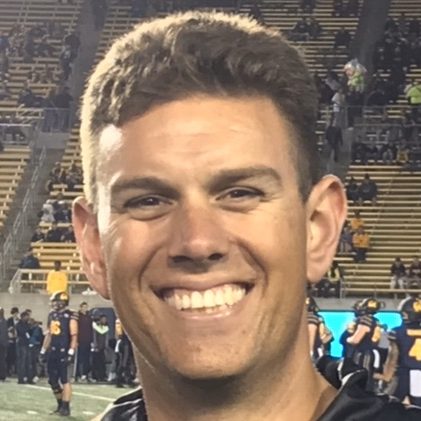
Daniel Diaz-Romero
Instructor of kinesiology
at Sierra College
Sierra College
Faculty Association
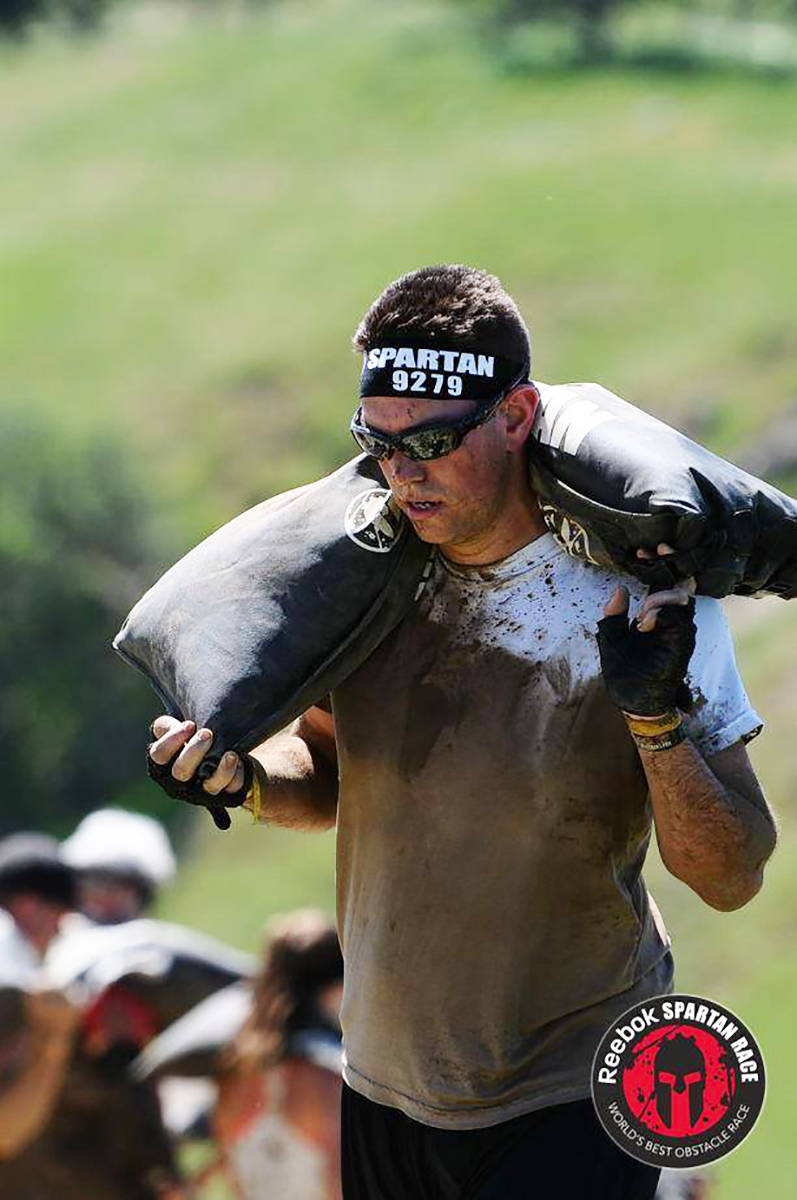
Diaz-Romero practicing what he preaches at a Spartan Race.
- Find exercise that you enjoy. Whether it’s lifting weights, tennis, swimming, surfing, walking, bike riding or going to the gym, find things you enjoy that will give you a good cardio workout. Don’t be intimidated going to the gym or worrying about how your body looks. Try new things.
- Set SMART goals. It stands for: Specific; Measurable (so you can accurately track your progress); Attainable (which means realistic); Relevant (so it will have a direct benefit); and Timebound (by setting a timeline to keep you on track).
- Think of good health as a lifestyle. Setting short-term goals is important, but the ultimate goal is to create a healthy lifestyle that will improve your mental health, sharpen your brain’s ability to respond to stimulus, boost your energy levels, provide an overall sense of well-being, and help you to live longer. There is never a better time to start than right now.
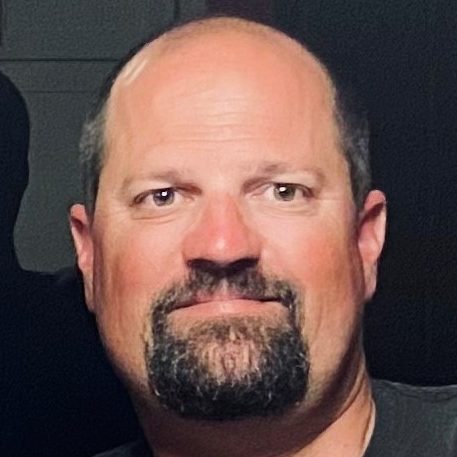
Stephen Smith
Associate professor of kinesiology at Rio Hondo College
Rio Hondo College Faculty Association
- Start moving. During your prep period, walk around the track. Or march in place. Don’t always park at the closest parking spot; park further away and walk. Take the stairs. The smallest things make a difference from a physical standpoint. Track your steps. Technology can easily tell us how many steps we take.
- Take a break from social media. Stop reading all the negative stuff where people are fighting, arguing and trying to incite other people to get upset. Our first instinct is to look at our Facebook or Twitter feed every free second. There are great things about social media, such as staying in touch with family or friends. But we need to cut the negativity that comes with it.
- Attitude is everything. We couldn’t control the pandemic, but we could control our reaction to it. Taking it a step further: We can’t control what our principal does and how parents behave, but we can control how we respond to these things and not dwell on them. As a middle school and high school teacher in a former life, I would constantly remind myself that parents who were complaining just care about their kids, and I would try not take it personally.
Other stories in this special section on Ways to Wellness:
FOR YOU
- Compassion fatigue – setting up a structure and systems to help individuals
- SEL for you, too – Social-emotional learning for educators
FOR YOUR STUDENTS
- Movement matters – PE teachers’ plans to get students into tip-top shape
- Conditions to thrive – School counselors, educators on easing kids back into routine
FOR YOUR SCHOOL COMMUNITY
- Reimagining schools with equity at the center
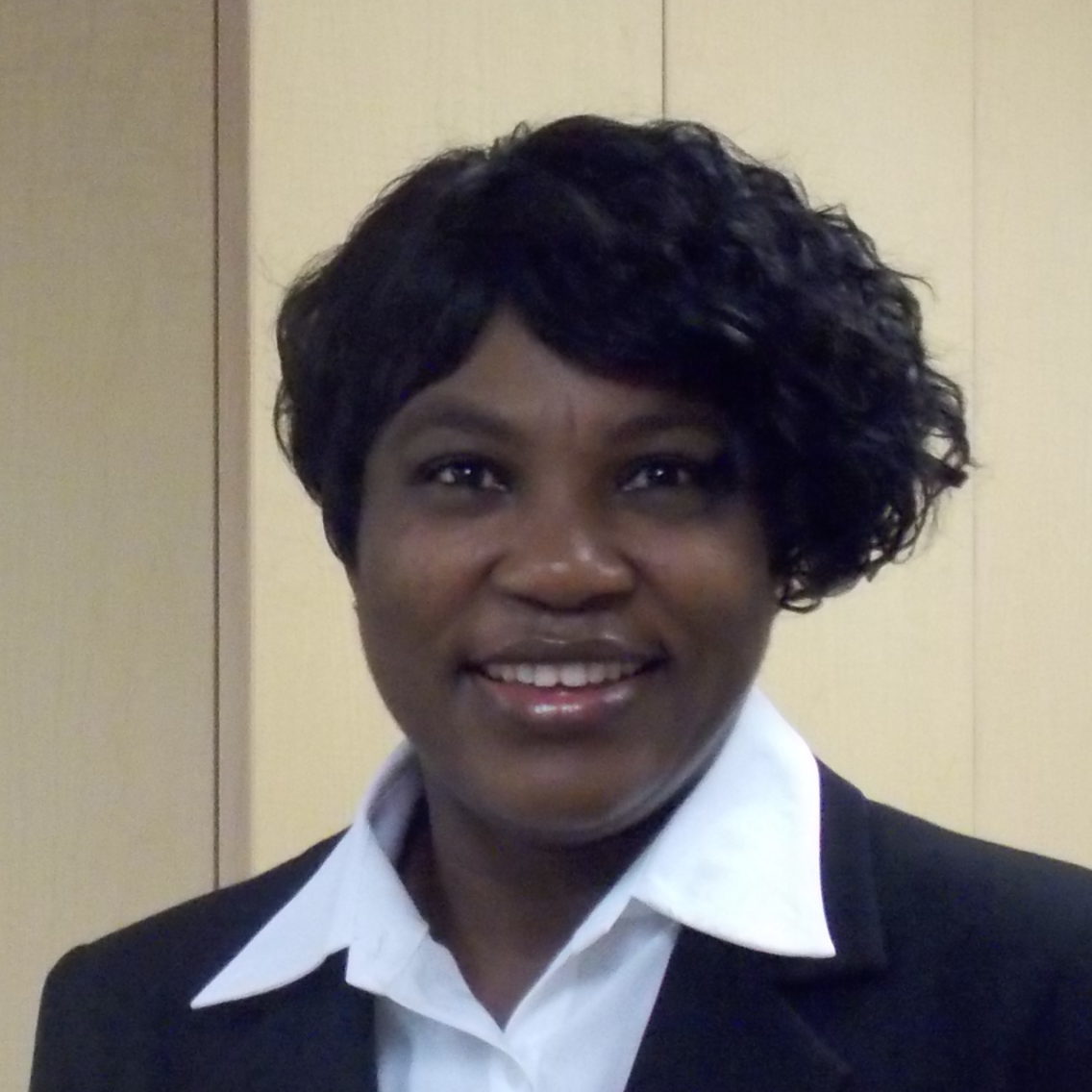
The Discussion 0 comments Post a Comment